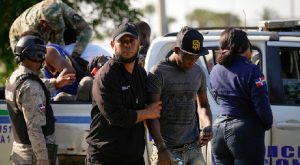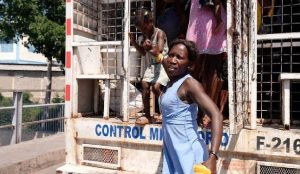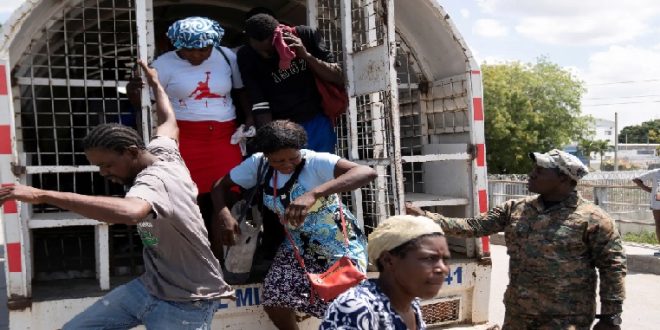04-10-2024
SANTO DOMINGO: The Dominican Republic says it plans to deport up to 10,000 undocumented migrants a week to combat uncontrolled migration.
The plan was announced by President Luis Abinader’s spokesman, Homero Figueroa, who blamed the international community’s slow response to months of gang violence in neighboring Haiti and its failure to restore stability.
 Tens of thousands of Haitians have fled across the border into the Dominican Republic.
Tens of thousands of Haitians have fled across the border into the Dominican Republic.
Critics say the government of President Abinader has treated Haitian migrants inhumanely, many of whom are fleeing the extreme gang violence and poverty in the capital Port-au-Prince.
Figueroa said deportations would begin immediately and follow strict protocols that guaranteed respect for human rights.
The comments by the Dominican government’s spokesman suggest the rate of deportations of undocumented Haitians is about to ramp up significantly.
Since gang violence in Haiti has worsened in recent months, the Dominican authorities have steadily been returning Haitians over their shared land border including several truckloads of people per day at the border crossing at Dajabon.
Now, said Figueroa, that figure could reach as many as 10,000 people a week.
He spoke of what he called an “excess” of Haitian migrants in the Dominican Republic and said the border authorities would also increase their surveillance and control.
The Dominican president recently warned the United Nations’ General Assembly that his government was prepared to take what he called “drastic measures” in the face of the humanitarian crisis across the border.
In part, these latest comments about mass deportations underline Santo Domingo’s frustration at the international community’s failure to establish greater stability in Haiti.
A Kenyan-led international security force of around 400 officers has been deployed to the Caribbean nation.
 However, gangs still control most of the capital and the humanitarian emergency in terms of hunger, access to clean drinking water and medical attention remains critical.
However, gangs still control most of the capital and the humanitarian emergency in terms of hunger, access to clean drinking water and medical attention remains critical.
According to the UN’s International Organization for Migration (IOM), last year the Dominican Republic forcibly returned more than 200,000 people to Haiti.
At the Dajabon border crossing between the Dominican Republic and Haiti, a constant stream of trucks pulls up carrying undocumented Haitian migrants, who are being deported back to their home country.
They are being sent to a nation in the grip of its most acute humanitarian crisis since the devastating earthquake in 2010, which killed hundreds of thousands.
“I’d been in the Dominican Republic for three years,” yelled construction worker, Michael Petiton, “they came into my house and took me from my home.”
He worked hard, he insisted, doing a job most Dominicans did not want. Now he is back in Haiti with only the clothes on his back and a few tools he managed to salvage in a rucksack.
Haiti’s already precarious situation has quickly deteriorated over the past weeks as gangs have launched coordinated attacks on key facilities to force the resignation of the country’s prime minister.
In total, more than 350,000 people have been internally displaced in Haiti, more than 15,000 of them in the last fortnight. (Int’l Monitoring Desk)
 Pressmediaofindia
Pressmediaofindia




